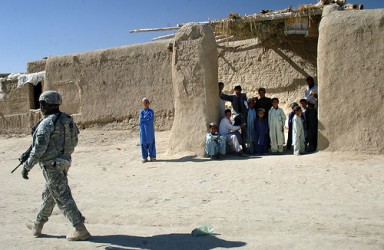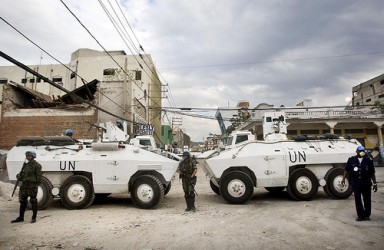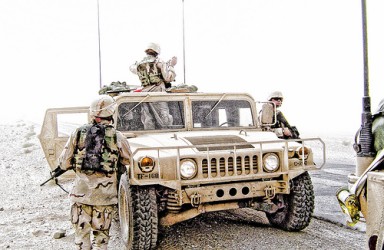The Political and Economic Dimension of the War in Afghanistan
With increasing globalization, the spread of ideas is limitless and states’ borders become porous, which therefore permits radical ideas and beliefs to infiltrate other countries.
Exploring Mercenaries
The centuries-old mercenary profession lives on in the modern era, and the current use of private military contractors, while at unprecedented levels, does not signify a new type of war.
Jumping the Loaded Gun: How Promoting Democracy Fails to Achieve Peace
The West’s democracy promotion has achieved an outcome antithetical to its purpose: an increase in the violence of and destabilization within low-income and conflict-affected states.
Political Islam: A Threat to the Political Stability of Current Regimes in the Middle East?
Political Islamism has become mainstreamed to such an extent that no regime in the region can avoid engaging with it.
Bashar al-Assad: A Machiavellian Prince?
The differences between Machiavelli and Bashar al-Assad in their approaches are stark. When compared, Bashar al-Assad cannot be considered a true Machiavellian realist.
Western Ideals of Gender Equality: Contemporary Middle Eastern Women
Cultural relativism holds the potential to inhibit progress towards equality if every time a human right’s law pertaining to women is constrained by a cultural specificity.
Is Intervention a Useful Tool to Stop Humanitarian Crises?
Humanitarian intervention creates a human rights conundrum, but it is a crucial tool in stopping humanitarian crises and protecting the welfare of civilian populations caught therein.
European Union Democracy Promotion: The Case of Bahrain
While the EU has achieved successes in promoting democracy in its immediate neighbourhood, its normative foreign policy has been less successful within a global context.
Deconstructing Justifications for Invading Iraq
The US invaded Iraq to strengthen and expand its ability to exert hegemony over this key regional area, to control Iraq’s oil reserves, and to liberalize Iraq’s economy.
Private Military Companies in the Contemporary Security Context
The new security context presented by PMCs challenges the traditional Weberian concept of the state as the sole depository of legitimate violence.










